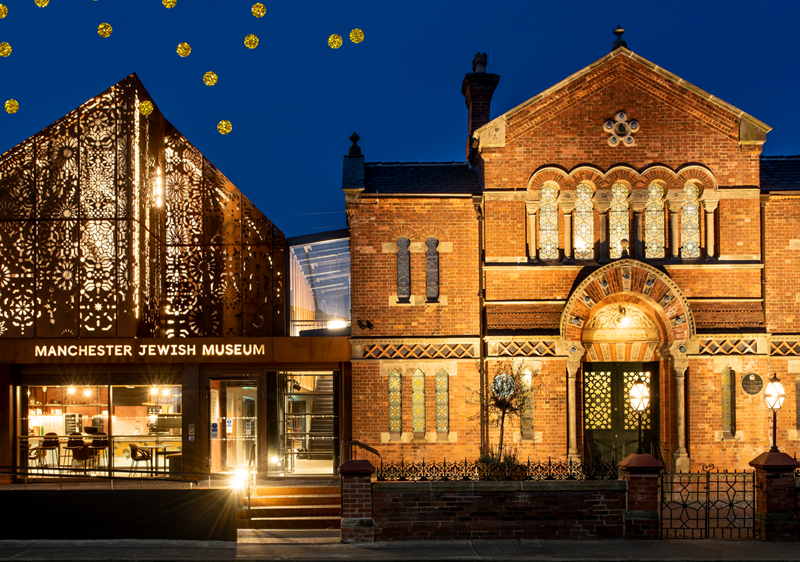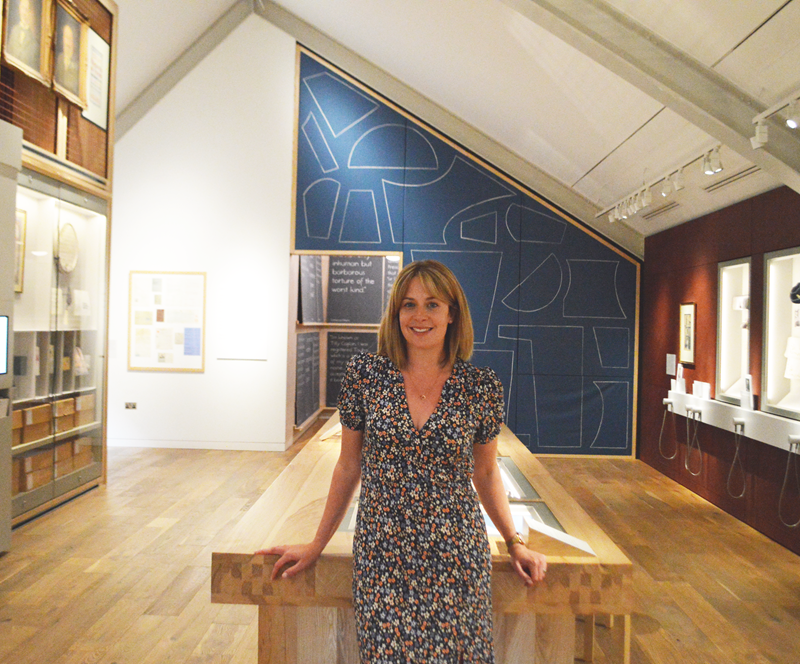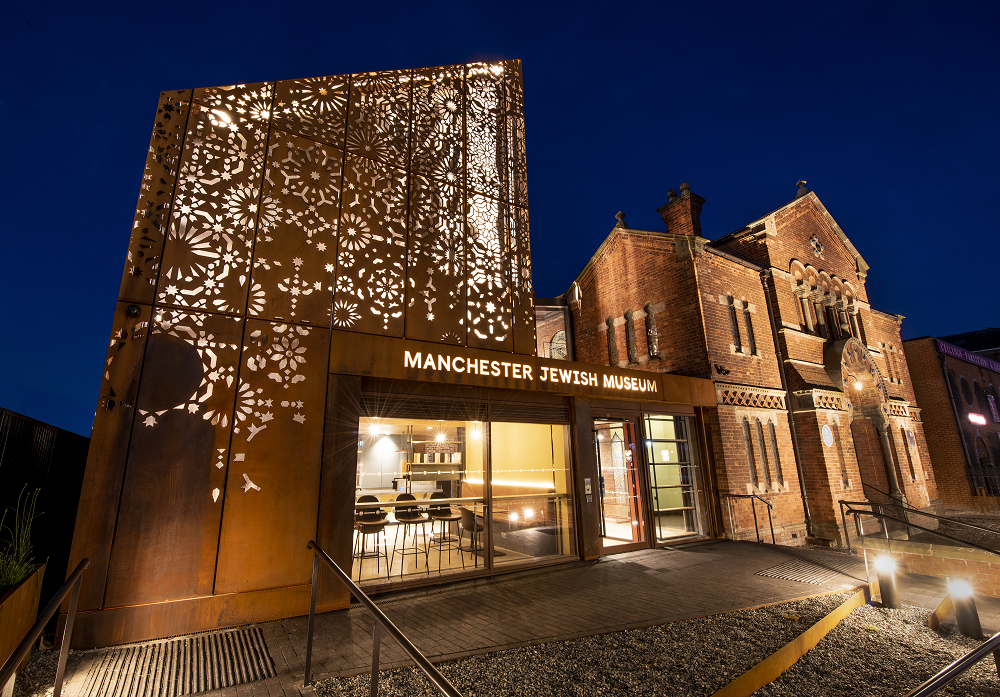Manchester Jewish Museum pays tribute to the Queen
We were deeply saddened by the recent news about the death of Queen Elizabeth II. She was a constant in the lives of many in our community and will be missed and remembered by them. We offer our dearest condolences to the Royal Family. Our thoughts are with them now.
The Queen arrived at the museum in the afternoon. She was wearing a beautiful, pale lilac coat with a matching silk hat and a classic double row of pearls. The background music at the event was played by a trio from King David High School, led by Mrs Sandra Friedman and including Lucy Glynn on flute, Melanie Warner on clarinet and Leora Caller on violin. During her visit, the Queen saw the gallery exhibition and met with museum’s staff and volunteers. She has also been shown a 150-year old Torah scroll and showed particular interest in the skills and expertise of Michael Hafner, as he skilfully transcribed it.
The photographs from Her Royal Highness’s are now kept in Manchester Jewish Museum’s archive.
Our museum will remain open as usual during the time of mourning, with the exception of Monday, 19 September, the day of Her Majesty Queen Elizabeth II’s State Funeral, when we will close to the public.












